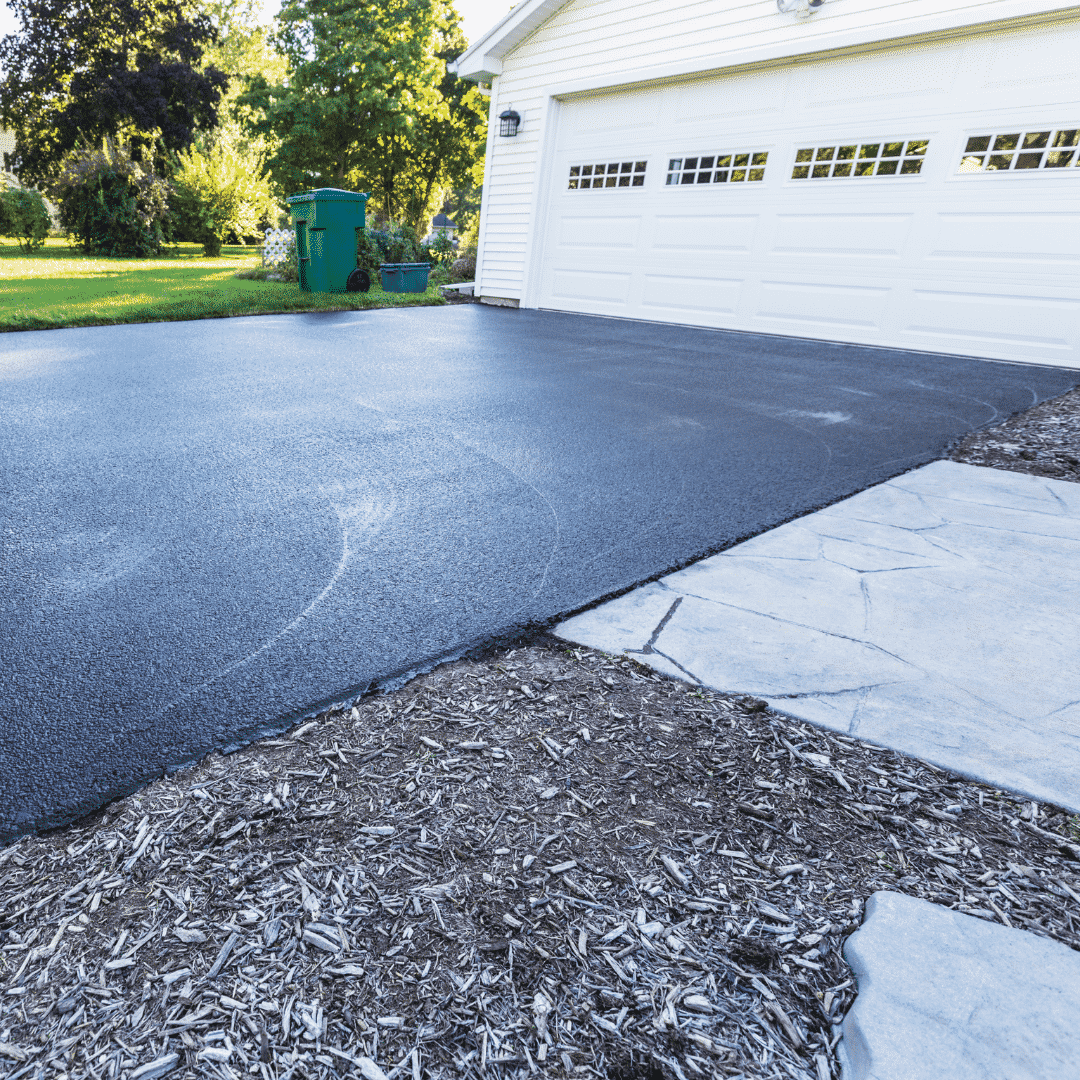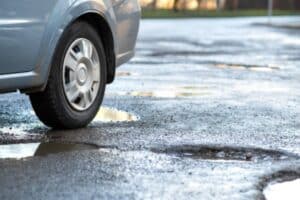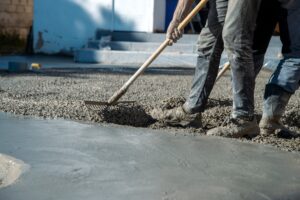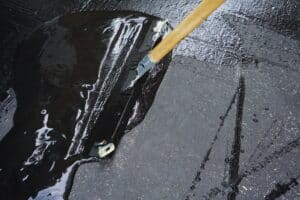If you’re a business owner or property manager, you know the importance of asphalt sealing. It’s one of the most effective ways to protect your pavement from the elements and extend its lifespan. But when is the best time to seal new asphalt? Many people make the mistake of sealing it too soon, which can be less effective. In this blog post, we’ll discuss when to seal new asphalt and why you must wait.
The Importance of Sealing New Asphalt
Any property owner knows that a strong, smooth asphalt surface is essential for a well-maintained parking lot or driveway. Not only does asphalt provide a durable surface for cars and pedestrians, but it also has a relatively low cost of maintenance.
When you seal new asphalt, you’re creating a barrier between the bitumen and the elements. Sealing asphalt helps to prevent moisture damage, which can lead to cracking and potholes. It also helps to protect against UV damage and staining from oil and gas spills. In addition, sealing helps to fill in small voids and irregularities, creating a smooth surface that is less likely to cause accidents.
As a result, sealing new asphalt can prolong its lifespan and help it look better for years to come.
When to Seal New Asphalt — the “magic window.”
Asphalt driveways add curb appeal and value to a home, so keeping them in good condition is important. One way to do this is by regularly sealing the asphalt. However, it’s important to know when to seal a new driveway.
To be clear, you should generally not seal larger sections of asphalt immediately after being paved. This is because the asphalt needs time to cure or harden. The curing process takes around six months, but most of the curing takes place in the first 30. However, this can vary depending on the weather conditions.
The best time to seal a new driveway is when it reaches what’s known as the “magic window,” which typically occurs 6-12 months after the asphalt is first installed. This will give the bitumen ample time to cure and bond with the aggregate. If the sealer is applied too soon, the hydrocarbon oils that make asphalt flexible will be trapped, and the driveway will be permanently susceptible to impressions and scratches.
It’s also okay to wait longer before completing the asphalt sealing process. It all depends on the quality of asphalt you’ve laid. If your asphalt is good quality, you might not need to seal it for 3 years. If the asphalt is lower quality, you might need to seal it in 1 year.
Why You Must Wait to Seal New Asphalt
As we mentioned earlier, it’s important to wait at least six months before sealing new asphalt. But why is this?
If you seal new asphalt too soon, the bitumen won’t have had enough time to cure and bond with the aggregate. This can cause the sealer to peel or flake off, leaving your pavement vulnerable to damage. In addition, if you seal new asphalt when it’s too cold outside, the sealer will not be as effective. It’s important to wait until the temperature is above 50 degrees Fahrenheit so that the sealer can properly adhere to the surface.
Read more: When is the Best Time of Year to Sealcoat?
What Happens if You Don’t Seal New Asphalt?
If you don’t seal new asphalt, it will eventually become brittle and dry out. This can cause the surface to become cracked and potholed. In addition, the pavement will begin to fade and lose its original color.
Ultimately, failing to seal new asphalt will shorten its lifespan and costly repairs. So, if you want to keep your pavement looking its best, it’s important to seal it within the magic window.
How Often Should You Seal Asphalt?
In general, you should seal asphalt every two to three years. However, this can vary depending on the climate and how much traffic the pavement gets. For example, if you live in an area with harsh winters, you may need to seal your asphalt more frequently. Additionally, in less exposed, lower-traffic conditions you can sometimes wait as long as five years.
Read more: How Often Should You Seal Coat Your Driveway
The Bottom Line
Overall, sealing your new asphalt is a crucial step in protecting it and ensuring that it lasts for as long as possible. You can contact us to find out more about when the best time to seal new asphalt is in your area or to get a quote for our services. We want to help you take care of your pavement, so it can take care of you for years to come.




